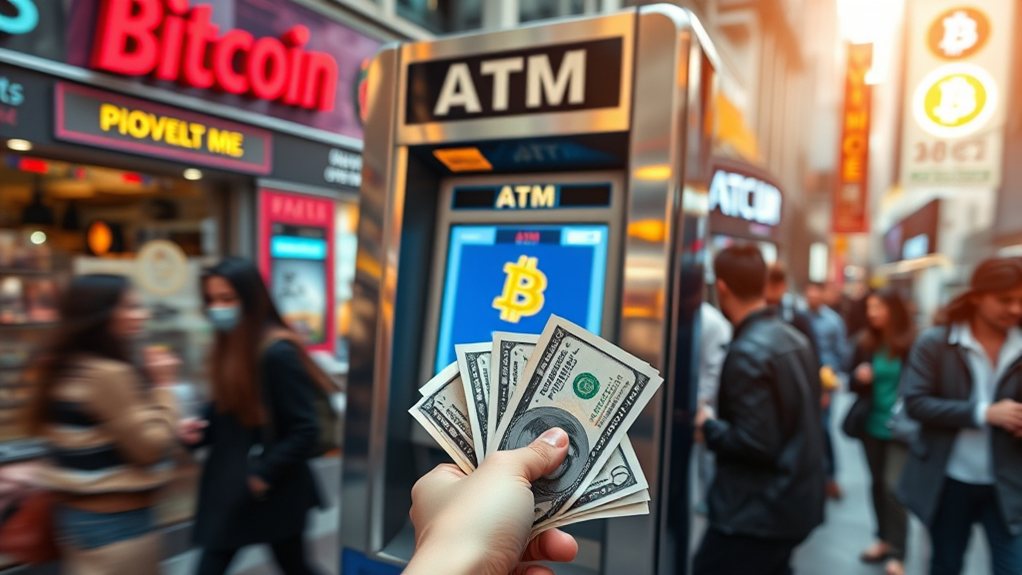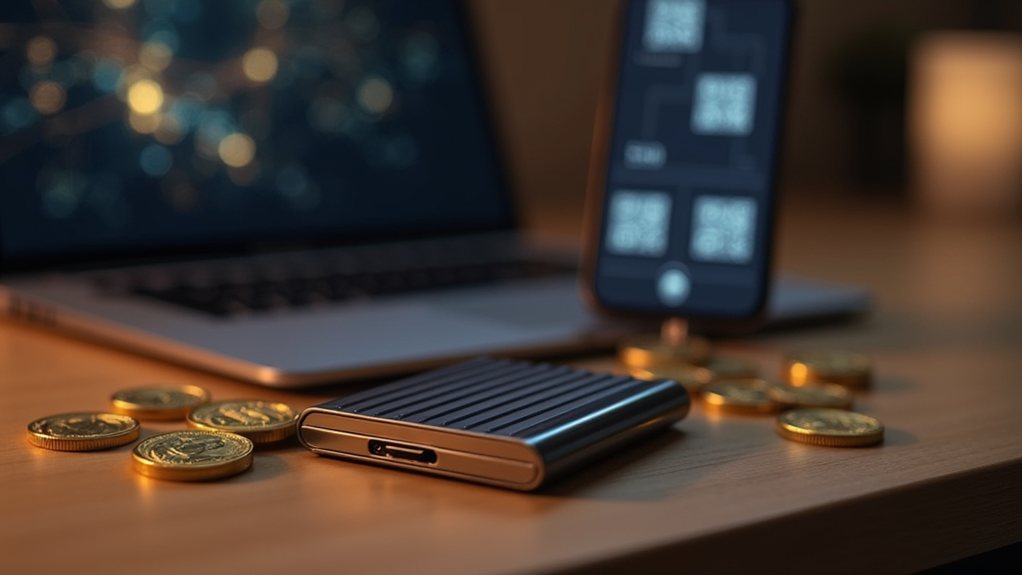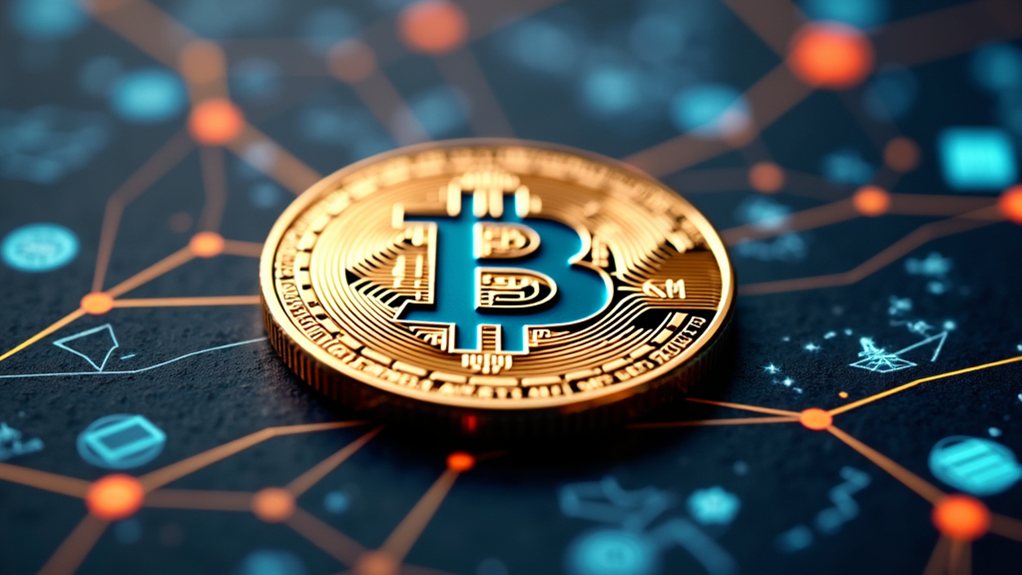Bitcoins can be acquired through several channels. Cryptocurrency exchanges like Coinbase and Binance offer simple buying options. Bitcoin ATMs allow cash-to-Bitcoin purchases at over 34,000 locations worldwide. Peer-to-peer marketplaces connect buyers with sellers directly. Some earn Bitcoin through mining, which requires specialized equipment and electricity. Others collect small amounts from faucets or microtask websites. Each method presents different advantages regarding fees, privacy, and accessibility for potential Bitcoin owners.

Where can someone purchase or obtain Bitcoin in today's digital economy? Bitcoin exchanges offer the most common method for buying the digital currency. Coinbase, a large US-based exchange, provides a user-friendly interface for newcomers. Binance attracts global users with high liquidity and low fees. Kraken offers advanced trading features for experienced users. Gemini focuses on security and compliance for those concerned about safety. Bitstamp, one of the oldest exchanges, serves primarily European customers.
Bitcoin ATMs provide another option for acquiring the cryptocurrency. There are over 34,000 Bitcoin ATMs worldwide as of 2024. These machines allow cash-to-Bitcoin purchases and sometimes Bitcoin-to-cash withdrawals. They're typically located in high-traffic areas like shopping centers and convenience stores.
While convenient, Bitcoin ATMs charge higher fees compared to online exchanges, usually between 5-10%. They require minimal personal information for small transactions, making them accessible to many users.
Peer-to-peer marketplaces connect Bitcoin buyers and sellers directly. LocalBitcoins operates globally, linking users who want to trade. Paxful offers various payment methods to accommodate different preferences. Bisq provides decentralized exchange software for direct trades without intermediaries. HodlHodl runs as a non-custodial platform, meaning users maintain control of their funds. Mycelium Local Trader facilitates in-person Bitcoin trades through a mobile app.
Mining represents a more technical way to acquire Bitcoin. Miners solve complex mathematical problems to validate transactions on the network. This process requires specialized hardware called ASIC miners and significant electricity. The mining process not only generates new bitcoins but also serves as a critical mechanism for transaction verification and network security. Most miners find it increasingly difficult to compete with large mining operations that can generate 745 quintillion hashes per second.
Many miners join pools to combine resources and increase their chances of earning rewards. The current block reward stands at 3.125 BTC, which halves approximately every four years. The network automatically adjusts mining difficulty every 2,016 blocks to maintain a 10-minute block time.
For those seeking smaller amounts, Bitcoin faucets give tiny bits of cryptocurrency for completing simple tasks. These might include watching ads, solving captchas, or playing games. Payouts typically range from a few satoshis to a few hundred satoshis (a satoshi is one hundred millionth of a Bitcoin).
Most faucets set minimum withdrawal amounts before users can access their earnings. After acquiring Bitcoin through any method, it's recommended to transfer your funds to a secure digital wallet for safekeeping. Other Bitcoin earning platforms include microtask websites like Bitfortip and Earn.com, content creation platforms with Bitcoin rewards, and Bitcoin-back shopping programs such as Lolli and Fold.
Some users receive Bitcoin through gifts and tips. Options include Bitcoin gift cards, tipping bots on social media, paper wallets as physical gifts, and charitable donations. Browser extensions also enable content creators to receive small tips in Bitcoin from their audience.
Frequently Asked Questions
How Do I Securely Store Bitcoins After Purchasing Them?
Bitcoin owners have several secure storage options.
Hardware wallets offer maximum security by keeping private keys offline.
Software wallets provide convenience through desktop or mobile apps.
Paper wallets store key information on physical documents.
Security experts recommend using strong passwords, enabling two-factor authentication, updating wallet software regularly, and backing up recovery phrases offline.
Many investors use cold storage for large amounts and hot wallets for everyday transactions.
What Are the Tax Implications When Buying and Selling Bitcoins?
Bitcoin transactions have tax consequences in the U.S. The IRS treats Bitcoin as property.
When someone sells Bitcoin, they'll owe taxes on any profit made. Short-term gains (held less than a year) face higher tax rates than long-term gains.
Trading Bitcoin for other cryptocurrencies, using it to buy things, or receiving it as payment are all taxable events. Transactions must be reported on tax forms.
Can I Mine Bitcoins at Home With Regular Computer Equipment?
Mining Bitcoin at home with regular computer equipment isn't practical anymore.
Standard PCs lack the processing power to compete with specialized mining hardware called ASICs. The Bitcoin network's difficulty has grown too high for consumer equipment to mine profitably. Home miners would spend more on electricity than they'd earn in Bitcoin.
Some alternative cryptocurrencies, however, can still be mined with consumer-grade graphics cards.
How Do Bitcoin Transaction Fees Work and Fluctuate?
Bitcoin transaction fees work like delivery charges for digital money transfers. They're paid to miners who process transactions on the network.
Fees aren't fixed but fluctuate based on network traffic—higher during busy periods. Measured in satoshis per byte, larger transactions cost more.
In 2024, average fees range from $1-$3 per transaction. Users can pay higher fees for faster processing, especially during congestion or when Bitcoin prices rise.
What's the Difference Between Hot and Cold Bitcoin Wallets?
Hot and cold wallets differ mainly in their connection to the internet.
Hot wallets stay online, making them convenient for frequent transactions but more vulnerable to hacking.
Cold wallets remain offline, providing stronger security for storing larger amounts of Bitcoin.
Popular hot wallets include mobile apps and web-based services, while cold wallets are typically hardware devices like Ledger or Trezor.
Each type serves different needs in a user's cryptocurrency management.














